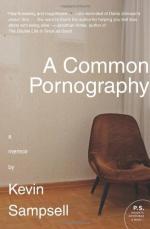|
This section contains 332 words (approx. 2 pages at 300 words per page) |

|
A 1992 decision by the Canadian Supreme Court—often referred to as the Butler decision—expanded Canada’s legal definition of obscenity and made it illegal to import or distribute any printed or visual material that was “degrading” or “harmful” to women.
Many Americans look to Canada’s decision in the Butler case as a model for modifying U.S. obscenity laws. Supporters of censorship contend that hardcore pornography, because it degrades women, is destructive speech and is therefore not protected by the First Amendment. Such obscenity should be censored to protect women, they maintain. Others who oppose pornography argue that prohibiting the distribution of obscene materials is not censorship at all. According to Betty Wein, who works as an editor for Morality in the Media, an organization that works to stop the traffic in pornography...
|
This section contains 332 words (approx. 2 pages at 300 words per page) |

|




